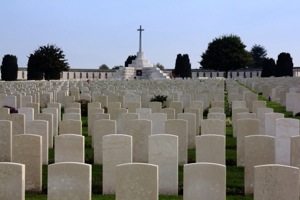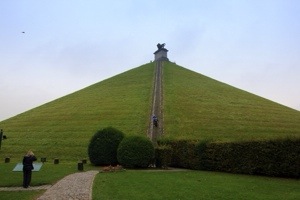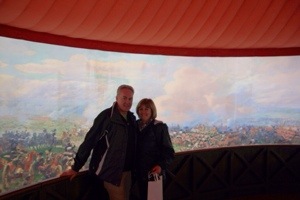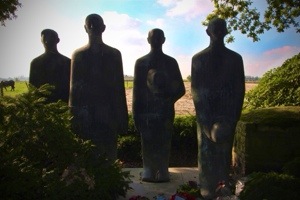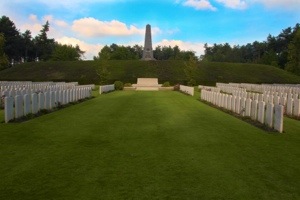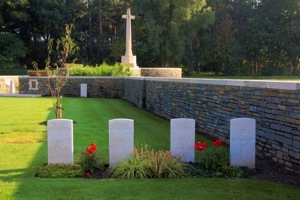Flanders (Friday 11 and Saturday 12 October): Days 21 and 22
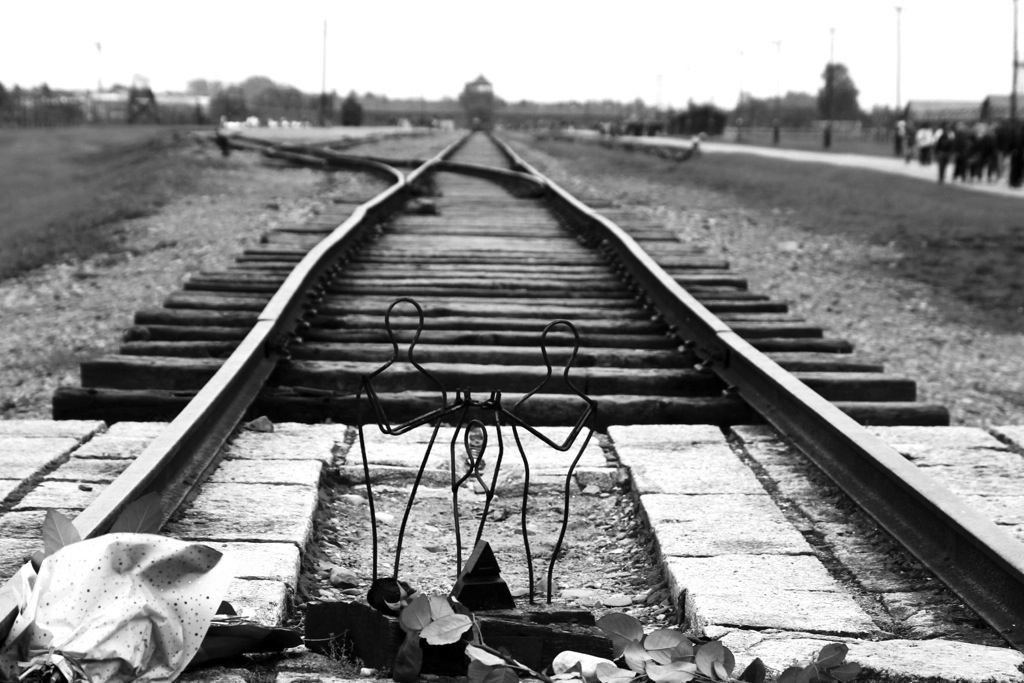
I suppose a struggle between life and death has in some way characterised this journey, which has not sad, been except for moments, but has rather been a celebration of much that we have believed, learned and taught over the years. We made a commitment some years ago to visit the remaining Australian battlefields on the Western Front, by going to Flanders and remembering all the stories of pain and courage and all the poetry that seems to go with the battlefields, around Ypres. Graeme Selmes and I have been exchanging stories of battlefield visits, and we both agreed that the newest cemetery on the Western Front, Pheasant Wood, is a deeply moving experience for Australians, as it contains the remains of soldiers who were not discovered until four years ago.
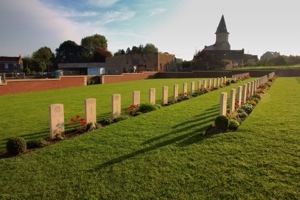
Tyne Cot, the biggest of the Commonwealth Cemeteries, left us lost for words, rows of graves that mostly held only the information that the occupant was know only to God. The German graves at Langemark were no better. Any politician counselling military action should be handed a return ticket to the Ypres sector and forced to count the cemeteries along the old front line. The writer John Keegan, the dean of military historians, argues persuasively that the study of modern war convinces one that war is neither necessary nor inevitable, that we can have peace and we must have peace.
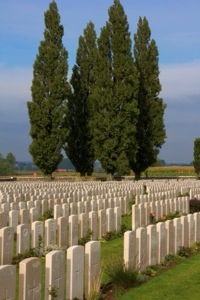
We lost a day in travelling from Munich to Brussels. I didn’t feel confident in taking a strange car onto a strange highway, although had I known how good the GPS unit was, I might have felt differently. Cheap fares and the length of Hefner train trip took us via Oslo — ? I hear you ask — so we could say we have been to Scandinavia, but it looked pretty enough from the air to warrant a whole visit.
The Brussels hotel was more than adequate and we made our way back to the airport and our very nice hire car. We were offered a Golf TSi, with a tiny but zippy engine, and while Paula refused to drive, she fell in love, so expect one of those babies in the garage next year! We drove via Waterloo, so I could indulge in some Napoleonic history. Even though the topography of the sunken road has been much altered by the Lions Mound, you can still see why Wellington chose to defend the road there and why Napoleon tried to force the road before the Prussians arrived.
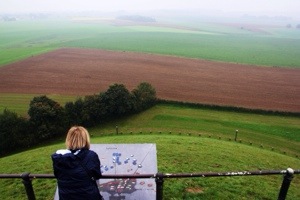
Our GPS threaded us back to the main roads — don’t I just love Belgian motorways — and we ended up at the Hill 60 Memorial. I think we have seen a lot of tortured earth in our travels, but the size of the craters is extraordinary. One feels for the poor farmers who must have come back to their ruined farms and wondered how on earth they would ever rehabilitate the poisoned lands. As we found out in the afternoon at the wonderful Flanders Field Museum, housed in the restored Cloth Hall in Ypres, life for Belgian refugees was tough. The Germans used them as slave labour, while the French hospitality waned over the war years. The British planted them in colonies around munitions factories. Still, they returned and demanded their ruined city and countryside should be rebuilt and restored, even if they had to live in prefab houses for ten years. And so you have Ypres and it’s countryside, with war remembered mainly by the many Commonwealth Cemeteries that line the road along the from lines, and the annual harvest of bones and shells the earth produces.
The less said about the hotel the better. There seems to be an axis between Torquay and Ypres that deserves study, because we were greeted by a gentleman at the desk who, if he wasn’t related to Basil Fawlty, certainly was on the same spectrum. Crap breakfasts, dodgy wifi, bizarre room names. An experience never to be repeated!
However, we weren’t there to luxuriate, we were there to commemorate, and in any case we ate brilliantly at a little restaurant that provided Flanders specialities. We drove to Frommelles the next morning to visit the diggers in the new cemetery at Pheasant Wood, to stand deeply moved at the Cobbers’ Memorial and to wander around VC Corner, the only solely Australian cemetery on the Western Front, with the diggers interred in a mass grave, unusually and poignantly reminding us of the slaughter of innocents that was Frommelles.
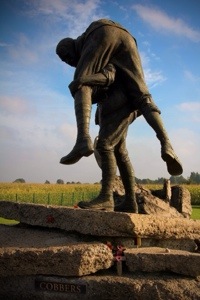
We wandered from memorial to museum all afternoon, suitably impressed by the Passchendael Museum and deeply moved by Polygon Wood. The topography made sense as you saw ridges and even rifle butts becoming valuable pieces of high ground. The central cross at Tyne Cot stands on the bunker capture by Australians at the climax of their participation in the Third Battle of Ypres, before it all went from bad to worse and weather brought the battlefield to a deadly porridge. The water is still just underfoot, a reminder of the conditions both sides endured in the awful autumn.
As always, these sad reminders of industrial death are sobering and bring into question the human capacity to achieve our survival as a species. We are glad to have gone, again to bear witness, and to bring to the men in the graves some small talk of home, so many thousands of miles away.

